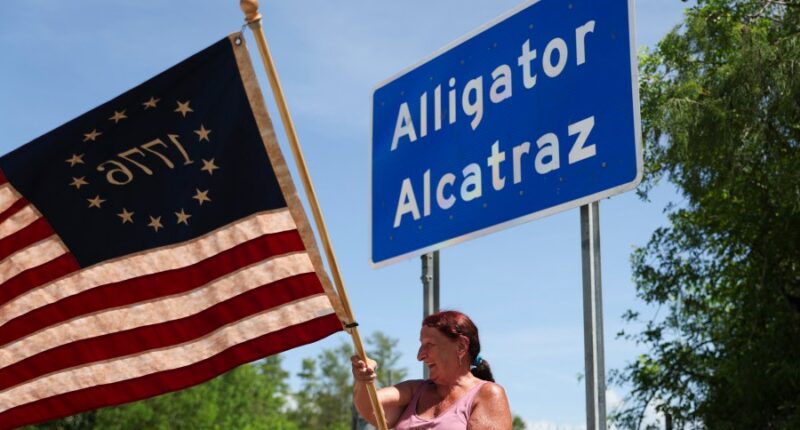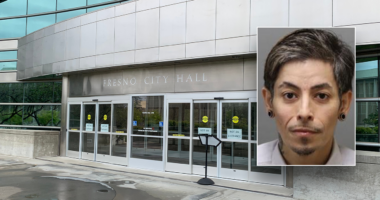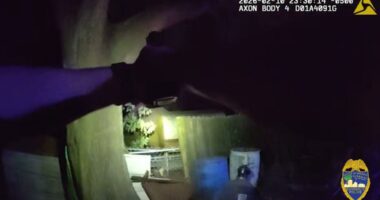Share this @internewscast.com

A federal judge in Miami, overseeing a case concerning the legal rights of detainees at the immigration detention center in the Florida Everglades, known as “Alligator Alcatraz,” has delivered a mixed ruling. The judge dismissed part of the lawsuit and redirected the case to another jurisdiction.
U.S. District Judge Rodolfo Ruiz issued his decision on Monday. In a detailed 47-page ruling, he declared that the claims regarding detainees lacking confidential access to their attorneys or access to immigration court hearings were rendered irrelevant. This change occurred after the Trump administration designated the Krome North Processing Center near Miami as the official location for hearing their cases.
During a Monday hearing in Miami, Judge Ruiz considered arguments from both sides. Civil rights attorneys had sought a preliminary injunction to guarantee detainees access to their legal representatives and the opportunity for a court hearing.
The state and federal governments argued that although the facility is on an isolated airstrip owned by Miami-Dade County, the venue was incorrectly placed in the lawsuit. They contended that the detention center’s location in Collier County, part of the state’s middle district, made the southern district inappropriate.
Judge Ruiz had hinted during a hearing last week that he had some concerns over which jurisdiction was appropriate.
“Much has changed since the complaint’s filing,” Ruiz wrote.
While six plaintiffs have managed to consult their lawyers via videoconferencing, they assert that these meetings lack confidentiality. The reason given is that they are held without enclosed privacy and staff members remain nearby, potentially overhearing conversations.
Some detainees claim that they qualify for bond hearings, yet their attorneys have faced obstacles in accessing or even identifying the appropriate court for such proceedings.
But Ruiz noted the facts in the case changed Saturday, when the Trump administration designated the Krome facility as the immigration court with jurisdiction over all detainees at the detention center.
Ruiz wrote that the case has “a tortured procedural history” since it was filed July 16, weeks after the first group of detainees arrived at the facility.
“Nearly every aspect of the Plaintiffs’ civil action — their causes of action, their facts in support, their theories of venue, their arguments on the merits and their requests for relief — have changed with each filing,” the judge wrote.
The judge granted the state defendants change of venue motion to the Middle District of Florida, where the remaining claims of First Amendment violations will be addressed.
The state and federal government defendants made an identical argument last week about jurisdiction for a second lawsuit in which environmental groups and the Miccosukee Tribe sued to stop further construction and operations at the Everglades detention center until it’s in compliance with federal environmental laws.
U.S. District Judge Kathleen Williams in Miami on Aug. 7 ordered a 14-day halt on additional construction at the site while witnesses testified at a hearing that wrapped up last week. She has said she plans to issue a ruling before the order expires later this week. She had yet to rule on the venue question.
___
Frisaro reported from Fort Lauderdale, Florida, and Schneider reported from Orlando, Florida.

















